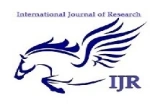
As a parent, there are many pressing matters when it comes to your child’s future. Quoting something from the parenting manual would be, a dip in your child’s performance in a petty monthly test. The disappointment frown which follows and the thoughts of your child becoming a failure among their peers lingers in your minds. Parents always pin their dreams on the children and push them to study harder. Albeit, education should not just mean excelling academics but also becoming well-rounded individuals. Gaining knowledge has been set aside by acing tests or stack piling trophies and accolades. And this unfavourable situation has it’s roots well established by the education offered in schools.
As students what we learn constitute the major building blocks of our personality and character. The morals inculcated by parents contributes about one-fourth while knowledge provided by schools contributes to the rest. These become the impetus to one’s actions which defines a person. Tapping into a student’s artistic, poetic, spiritual or social approach should be something that schools should work towards and adopt a holistic approach in learning. In philosophy, holistic refers to a belief that all aspects of something are linked to one another and can be comprehended only as a whole. A Classic example of holistic learning is Nobel Laurette Rabindranath Tagore’s Shantiniketan.

Shantiniketan (abode of peace) was Maharishi Debendranath Tagore’s brainchild. He stumbled upon the beauty of the area during his boat ride through Birhaum. What started as a spiritual centre welcomed everyone unbiasedly was transformed into a learning centre by none other than Rabindranath Tagore. He which envisaged a deep-rooted education for students from different cultures and connecting them to a wider world. His model school, was based on the Vedic tradition of Bhramacharya Ashram provided education end to end with teaching students their responsibilities, duties towards the community. The classes were held under the canopy of Chhatim trees, in open air scrapping the claustrophobia in a classroom. Thoughts and teachings would flow freely, a curriculum melding the traditional learning with western principles. Students were at a liberty to explore other unconventional talents, absorb about the nature and also fortified to give back to their society.
Holistic learning aims at developing a child’s physical, emotional, moral, psychological and spiritual intellect. It teaches children to create relationships with the environment, community and the people around them. Mainstream education deals with mechanical, scientific or logical aspect of a subject. For instance, a student is taught the processes of pollination in a flower and the botanical features, however schools ignore to teach them how to capture it’s beauty on paper, serenade about it’s attractiveness, pen down a poem on that fragrant garden or be entranced by it’s fragrance and escape into a moment of bliss. Dissecting a flower and plucking it to examine is easy, but there is an significant moral we disregard, ‘Plucking a pretty flower we love merely makes us more driven to be possessive over things we love, instead of caring and treasuring it.’ As an alternative of teaching them the harmful effects of global warming push them towards connecting with our nature emotionally and feel the sense of tranquillity in nature.
Dear readers, I’d like to ask a simple question that has popped in my mind. How often were you or your children taught in schools to respect it’s ancillary staff like the administrative staff, janitors, bus drivers or even those in your surroundings like the domestic help, the housekeeper, security men or even your usual vegetable vendors. The Government has definitely listed their services as ‘essentials’ but have we ever looked up to them with awe and not pity or even disgust. We often look spitefully at such professions, but left out on schooling them the value and contribution of every individual in the society. Shoving a few clothes or making generous contributions into a donation box for the distressed hit by a deluge is not identified as ‘social work’. Seldom do schools encourage students to visit an orphanage or rehabilitation centre or a hospice for the aged to volunteer. Hardly any students have experienced the delight of giving a few moments of happiness to someone specially abled, helping them sketch a drawing, playing a hand at cards with an ignored veteran, the satisfaction after a good deed is fleeting yet cherishable. They are always trained to aim for more, best college or job opportunity.


Students need to be taught that nothing appears in black and white. As much as being determined to be successful is a positive approach, neglecting unconventional talents and tagging them as a distraction would just confine you to a small, mundane space in life. These interests help in escaping from the clock-tuned routine, keep you productive instead of slipping into a phase of depression, boredom and self-loathing; It helps you stand out from the herd, giving you those additional soft skills to make you a confident, strong-minded individuals. Your perspective of the surroundings changes with a different slant towards your society. For instance if you’re passionate on pursuing a career as a health professional but also have an interest for graphic designing, then it’s time to embrace it and hustle hard. Probably the future has an opportunity in store for you to open a clinic and guess who’ll be designing some catchy, promotional material for it.
Spanning through a few pages in History, we stumble upon many examples of the outcomes of a passé, regressive society. Adolf Hitler was a tyrant, ruthless dictator. However, his memoirs have mentioned his passion and dreams of pursuing arts. His father, like most parents detested his dreams and forced him to pursue a mechanical course. If his father gave wings to his dreams, probably events like the Holocaust would’ve never unfolded and Hitler would be known as a renowned peaceful and terrific artist.


